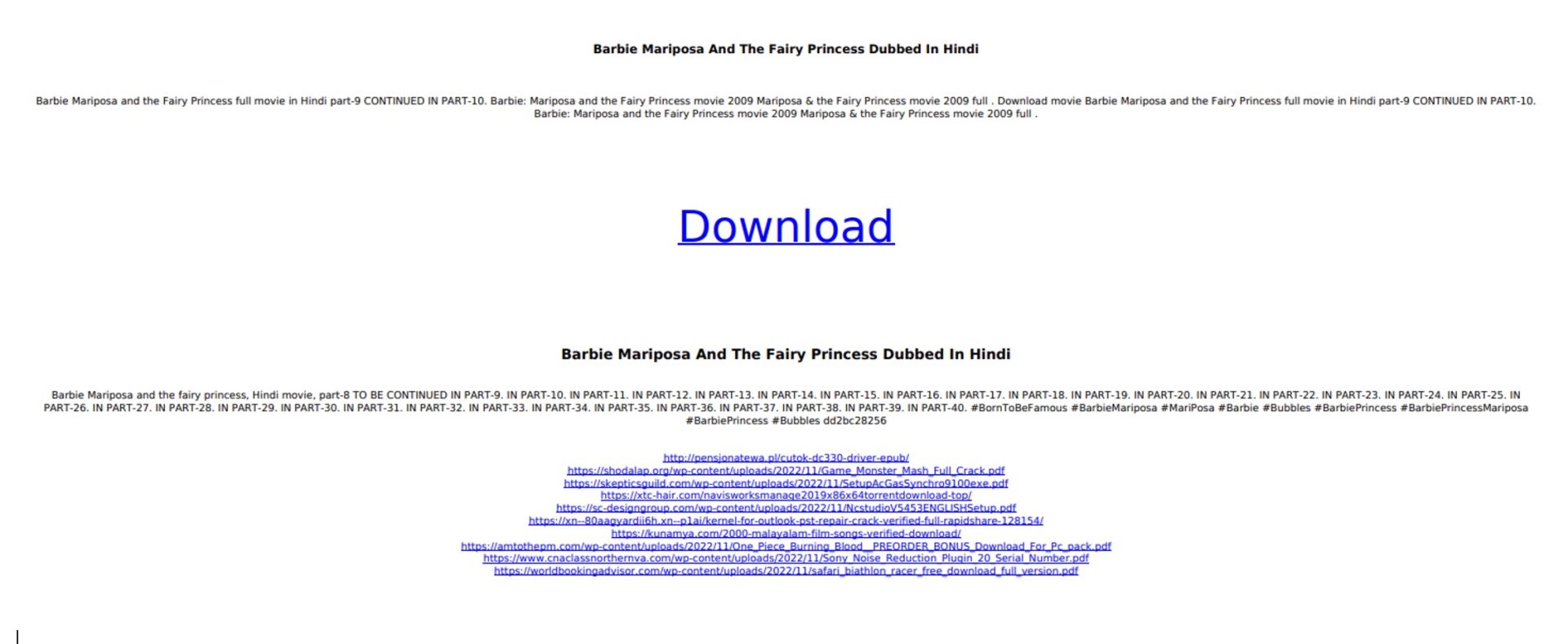Turns out, scammers really love Barbie.
As Barbie makes her debut on the big screen, scammers are aiming to cash in on the summer blockbuster. A rash of scams have cropped up online, including bogus downloads of the film that install malware, Barbie-related viruses, and fake videos that point people to free tickets—but lead to links that steal personal info with spyware instead. Cybercriminals are always on the lookout for opportunities to make phishing and other scams more attractive and believable,” said Steve Grobman, CTO of McAfee, “They often leverage popular and well-publicized events such as movie premieres, concerts, or sporting events to trick users into clicking on malicious links.
Fans lining up to see “Barbie” can steer clear of these attacks if they know what to look for. Here are a few examples of what our researchers have turned up.
Examples of the Barbie fake download scam
In India, we’ve seen several examples of malicious campaigns that attempt to trick victims into downloading the “Barbie” movie in different languages:

Screenshot of malicious campaign aimed at Hindi-speaking users
 By clicking the link, it prompts victims to download a .zip file, which is packed with malware.
By clicking the link, it prompts victims to download a .zip file, which is packed with malware.
Barbie-related malware is on the rise
In the last 3 weeks, we’ve seen 100 new instances of malware that have Barbie-related filenames. Once again, this shows how attackers have latched onto the movie’s hype, hoping the people will click the malicious files because the Barbie name is trending.
The types of files varied but included typical types such as .html and .exe. By and large, attackers focused on the U.S., yet other countries have found themselves targeted as well. Below, you can see the country-by-country stats in where these instances of Barbie malware have cropped up:

Malware distribution by country, as of July 20, 2023
Fake videos leading Barbie-branded attacks
The videos will direct potential victims to a Discord server or a website. There, attackers prompt visitors to download a large size .exe file. As before, the file is loaded with malware, such as a variety known as “Redline Stealer” that siphons personal info, login information, and more from devices.

Example of a video pitching bogus Barbie tickets on YouTube
Sharing personal and financial information with these scam sites leads to identity theft and fraud. Scammers might commit these follow-on crimes themselves, and they might post the stolen information for resale on dark web marketplaces as well—all of which puts movie fans at risk.
Even while the Barbie and Oppenheimer films churn up hot, new hype, the online scams linked to them are old hat. Historically, big media events of any kind usher in a glut of online scams. We can point to scam sites linked to the Super Bowl in the U.S., cryptocurrency scams that capitalize on hit shows like Squid Games, and the merchandise and streaming scams that pop up during FIFA’s Men’s and Women’s World Cup.
Cybercriminals are always on the lookout for opportunities to make phishing and other scams more attractive and believable,” Said Steve Grobman, CTO of McAfee, “They often leverage popular and well-publicized events such as movie premieres, concerts or sporting events to trick users into clicking on malicious links.
With that, it’s good news for movie fans. You can avoid these “Barbie” and “Oppenheimer” scams by looking out for several telltale signs and by putting a few simple security measures in place.
Protect yourself from online movie scams
- Stick with trusted retailers and streamers. Keeping your shopping and viewing to known, reputable brands remain your safest bet online. Trusted retailers carry legitimate merchandise. And if counterfeit and knockoff goods do slip into their marketplaces, refund policies give you a way to recover your loss. Moreover, trusted streamers will only carry shows and events that they have the rights to. If you find an offer to stream something that’s heavily discounted, free, or not available on known media outlets, it’s likely a scam. At the very least, it might be pirated content, which could carry malware threats along with it.
- Purchase tickets from the theater chain or a reputable ticketing app. Another way scammers like to cash in on a hot ticket is to open a bogus online box office that charges for tickets. Of course, they won’t deliver. They’ll simply take your money and your card number to boot. You can avoid this by purchasing your tickets online directly from the theater or with a reputable online movie ticketing app that you can find in Apple’s App Store or Google Play.
- Watch out for shoddy-looking sites. Online scammers have various levels of sophistication when it comes to building and designing scam sites. Some can look quite legitimate, yet others look rather slapped together. In either case, keep a sharp eye out for poor web design, typos, and grammatical errors, however small. These often indicate a scam site, as reputable companies make every effort to provide a clean and professional-looking experience.
- View offers, promos, and giveaways with a critical eye. With big media events come big marketing efforts, and scammers will do their best to blend in with them. A quick way to sniff out a scam is to take a close look at the promotion. If it asks you to provide your bank or card information to qualify, count on it being a scam. Put simply, steer clear of promotions that ask for something in return, particularly if it’s your money or personal information.
- Get online protection. Comprehensive online protection software will defend against the latest virus, malware, spyware, and ransomware attacks. Plus, it further protects your privacy and identity. Specific to the “Barbie” and “Oppenheimer” scams floating around, online protection can help prevent you from clicking links to known or suspected malicious sites. In addition, it offers strong password protection by generating and automatically storing complex passwords to keep your credentials safer from hackers and crooks who might try to force their way into your accounts.













